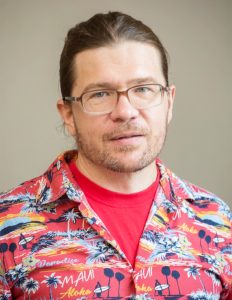
Pavel Baranov
University College Cork
Ireland
EMBO Practical Course
Regulation of translation is key in the control of gene expression, playing a critical role in many biological and pathophysiological settings. In the last decade, methodological advances have provided comprehensive insights into cellular transcriptomes and proteomes, however, the systems-wide analysis of translation remained an unsolved experimental challenge. The advent of ‘ribosome-profiling’ provided the methodological basis for comprehensive transcriptome-wide analyses of translation at sub-codon resolution by the precise and high-throughput determination of ribosomal positions on mRNA. Its application in a variety of organisms yielded novel insights into protein synthesis and its dynamic regulation, significantly advancing our understanding of the post-transcriptional regulation of gene expression.
The course is aimed at PhD students and early post-doctoral researchers who are entering the field of posttranscriptional regulation of gene expression.
The practical course ‘Measuring translational dynamics by ribosome profiling’ aims to:
a) generate a detailed theoretical understanding of ribosome profiling, its variations to address specific aspects of translation and its experimental strengths and limitations,
b) provide hands-on wet-lab training to perform ribosome-profiling experiments with the aim to understand and master the critical steps of the experimental workflow and to train the participants to independently perform and adapt similar experiments in their own laboratories,
c) provide hands-on bioinformatics training on processing the high-throughput sequencing data, the quality control and on the use of specialised tools for data generated by ribosome-profiling.
“The course gave a comprehensive understanding of ribosomal profiling from the theory and the scope of its impact, to practical work and analysing the data. It was a fantastic week filled with exciting discussions.” – Eleanor Bellows, University of Nottingham, UK
“I leave the course much more confident of being able to perform my own Riboseq experiments in near future.” – Ashish Goyal, DKFZ Heidelberg, Germany
This event has been granted the following EMBO sustainability badge:


University College Cork
Ireland
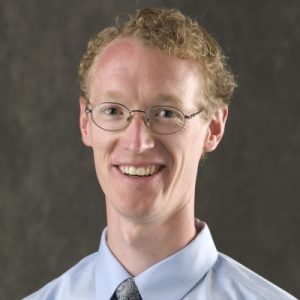
Johns Hopkins University School of Medicine
United States of America
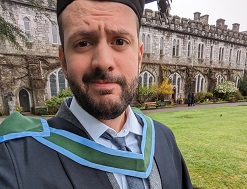
University College Cork
Ireland
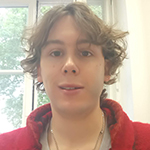
University of Bern
Switzerland
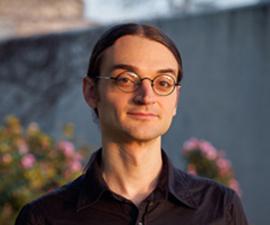
University of California, Berkeley
United States of America
University College Cork
Ireland
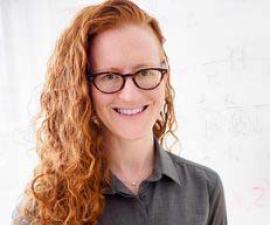
University of California, Berkeley
United States of America
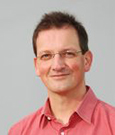
University of Bern
Switzerland
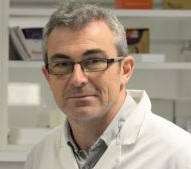
University College Cork
Ireland
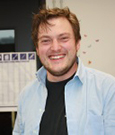
University of Regensburg
Germany
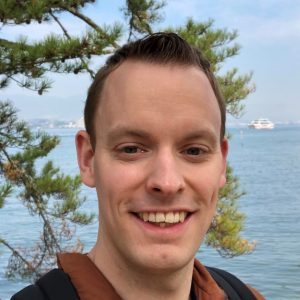
University of Bern
Switzerland
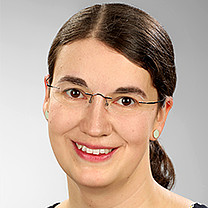
University Clinic Mannheim
Germany
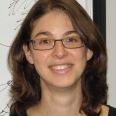
Technion
Israel
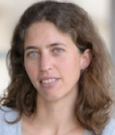
Weizmann Institute of Science
Israel
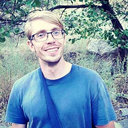
University of Warsaw
Poland
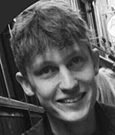
EMBL-EBI
UK
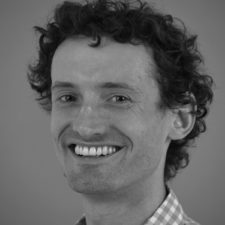
Hubrecht Institute
The Netherlands
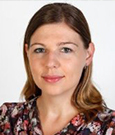
EMBL Heidelberg
Germany

University College Cork
Ireland

University of Bern
Switzerland

University of Regensburg
Germany

EMBL Heidelberg
Germany
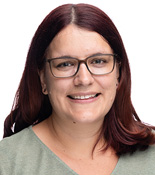
Course and Conference Officer
EMBL Heidelberg
Germany

Senior Scientific Training
and Digital Learning Manager
EMBL Heidelberg
Germany
Are you on social media? Post using #EMBORiboProf and don’t forget to tag @EMBLEvents.
| Time (Europe/Berlin) | Programme | Location |
|---|---|---|
| 14:00 – 14:15 | Welcome by Organizers | Virtual |
| 14:15 – 15:00 | Course overview and introduction to pre-course material | Virtual |
| 15:00 – 15:30 | Software testing and Q&A | Virtual |
| Time (Europe/Berlin) | Programme | Location |
|---|---|---|
| 13:30 – 13:45 | Bus from hotel to EMBL ATC Entrance | Bus stop in front of ISG Hotel |
| 14:00 – 14:30 | Welcome and house notes | Courtyard Room A&B |
| 14:30 – 15:00 | Ice-Breaking group activity | Courtyard Room A&B |
| 15:00 – 15:30 | Coffee Break | Courtyard Room A&B |
| 15:30 – 16:00 | Introduction: Overview of the course; technology background Pavel Baranov – University College Cork, Ireland Sebastian Leidel – University of Bern Switzerland Jan Medenbach – University of Regensburg, Germany | Courtyard Room A&B |
| 16:00 – 17:00 | Keynote lecture 1: Ribosome profiling – New insights to old questions Nicholas Ingolia – University of California, Berkeley, USA virtual talk | Courtyard Room A&B |
| 17:00 – 18:00 | Keynote lecture 2: How codon specific translation defects trigger cellular quality control Sebastian Leidel – University of Bern Switzerland | Courtyard Room A&B |
| 18:00 – 19:30 | Flash talks by participants, speakers and trainer | Courtyard Room A&B |
| 19:30 | Departure to Hotel | ATC Entrance |
| 19:45 | Dinner at ISG Hotel | ISG Hotel |
| Time (Europe/Berlin) | Programme | Location |
|---|---|---|
| 08:15 – 08:30 | Bus from hotel to EMBL ATC Entrance | Bus stop in front of ISG Hotel |
| 08:30 – 08:45 | Overview of the day and Laboratory Safety Instructions | Courtyard Room A&B |
| 08:45 – 10:00 | Overview of the protocol & introduction to practical work | Courtyard Room A&B |
| 10:00 – 10:30 | Coffee Break | Courtyard Room A&B |
| 10:30 – 11:30 | Wetlab Practical 1a Practical work: Preparation of RPFs Native extract preparation Trainers: Christian Eggers – University of Bern Switzerland Sebastian Leidel – University of Bern Switzerland Gary Loughran – University College Cork, Ireland Jan Medenbach – University of Regensburg, Germany Jan Müller – University of Bern Switzerland Elisabeth Zielonka – EMBL Heidelberg, Germany | Training Lab B |
| 11:30 – 12:30 | Wetlab Practical 1b Practical work: preparation of RPFs Extract quantification, ribonuclease digestion, preparation of gradients Trainers: Christian Eggers – University of Bern Switzerland Sebastian Leidel – University of Bern Switzerland Gary Loughran – University College Cork, Ireland Jan Medenbach – University of Regensburg, Germany Jan Müller – University of Bern Switzerland Elisabeth Zielonka – EMBL Heidelberg, Germany | Training Lab B |
| 12:30 – 13:00 | Wetlab Practical 1c Practical work: preparation of RPFs Start of ultracentrifugation Trainers: Christian Eggers – University of Bern Switzerland Sebastian Leidel – University of Bern Switzerland Gary Loughran – University College Cork, Ireland Jan Medenbach – University of Regensburg, Germany Jan Müller – University of Bern Switzerland Elisabeth Zielonka – EMBL Heidelberg, Germany | Training Lab B |
| 13:00 – 14:00 | Lunch | EMBL Canteen |
| 14:00 – 16:30 | Bioinfirmatics Practical 1 Computer Class: Raw Data processing: assessment of sequence data quality, adaptors removal, removal of rRNA and tRNA reads, PCR duplicates removal using UMIs, read mapping to genomes and transcriptomes. Trainers: Pavel Baranov – University College Cork, Ireland Gionmattia Carancini – University College Cork, Ireland Anmol Kiran – University College Cork, Ireland Michal Swirski – University of Warsaw, Poland Jack Tierney – EMBL-EBI, UK | Computer Training Lab |
| 16:30 – 17:00 | Coffee Break | Courtyard Room A&B |
| 17:00 – 19:00 | Wetlab Practical 1D Practical work: preparation of RPFs Gradient fractionation and RNA preparation Trainers: Christian Eggers – University of Bern Switzerland Sebastian Leidel – University of Bern Switzerland Gary Loughran – University College Cork, Ireland Jan Medenbach – University of Regensburg, Germany Jan Müller – University of Bern Switzerland Elisabeth Zielonka – EMBL Heidelberg, Germany | Training Lab B |
| 19:00 – 21:00 | Poster Session 1 / Dinner | Helix A |
| 21:00 | Departure to Hotel | ATC Entrance |
| Time (Europe/Berlin) | Programme | Location |
|---|---|---|
| 08:40 – 09:00 | Bus from hotel to EMBL ATC Entrance | Bus stop in front of ISG Hotel |
| 09:00 – 09:15 | Overview of the day | Courtyard Room A&B |
| 09:15 – 11:00 | Wetlab Practical 1E Practical work: preparation of RPFs Size selection of RPFs by PAGE Trainers: Christian Eggers – University of Bern Switzerland Sebastian Leidel – University of Bern Switzerland Gary Loughran – University College Cork, Ireland Jan Medenbach – University of Regensburg, Germany Jan Müller – University of Bern Switzerland Elisabeth Zielonka – EMBL Heidelberg, Germany | Training Lab B |
| 11:00 – 11:30 | Coffee Break | Courtyard Room A&B |
| 11:30 – 12:30 | Keynote Lecture 3: Understanding Viral biology by ribosome profiling Noam Stern-Ginossar – Weizmann Institute of Science, Israel | Courtyard Room A&B |
| 12:30 – 13:00 | Wetlab Practical 1F Practical work: preparation of RPFs Gel extraction setup (overnight incubation) Trainers: Christian Eggers – University of Bern Switzerland Sebastian Leidel – University of Bern Switzerland Gary Loughran – University College Cork, Ireland Jan Medenbach – University of Regensburg, Germany Jan Müller – University of Bern Switzerland Elisabeth Zielonka – EMBL Heidelberg, Germany | Training Lab B |
| 13:00 – 14:00 | Lunch | EMBL Canteen |
| 14:00 – 15:00 | Keynote Lecture 4: Adapting ribosome profiling for bacteria Allen Buskirk – Johns Hopkins University School of Medicine, Baltimore, USA | Courtyard Room A&B |
| 15:00 – 16:00 | Bioinformatics Practical 2 Computer Class: Quality Assessments: Analysis of read mapping across different functional regions; read length distribution and triplet periodicity, metagen profiles for the assessment of global translation. Trainers: Pavel Baranov – University College Cork, Ireland Gionmattia Carancini – University College Cork, Ireland Anmol Kiran – University College Cork, Ireland Michal Swirski – University of Warsaw, Poland Jack Tierney – EMBL-EBI, UK | Computer Training Lab |
| 16:00 – 16:30 | Coffee Break and course group picture | Courtyard Room A&B |
| 16:30 – 17:30 | Bioinformatics Practical 2 continued Computer Class: Quality Assessments: Analysis of read mapping across different functional regions; read length distribution and triplet periodicity, metagen profiles for the assessment of global translation. Trainers: Pavel Baranov – University College Cork, Ireland Gionmattia Carancini – University College Cork, Ireland Anmol Kiran – University College Cork, Ireland Michal Swirski – University of Warsaw, Poland Jack Tierney – EMBL-EBI, UK | Computer Training Lab |
| 17:30 – 18:30 | Keynote Lecture 5: New insights through single cell ribosome profiling Michael VanInsberghe – Hubrecht Institute-KNAW, The Netherlands | Courtyard Room A&B |
| 18:30 – 18:45 | Coffee Break | Courtyard Room A&B |
| 18:45 – 19:45 | Group Activity / Responsible conduct of research session Interactive discussion round: ● Sources of experimental artifacts ● The technology in different species ● What are key quality controls? ● Parameter space for optimization | Courtyard Room A&B |
| 19:45 – 21:45 | Poster Session 2 / Dinner | Helix A |
| 21:45 | Departure to Hotel | ATC Entrance |
| Time (Europe/Berlin) | Programme | Location |
|---|---|---|
| 08:40 – 09:00 | Bus from hotel to EMBL ATC Entrance | Bus stop in front of ISG Hotel |
| 09:00 – 09:15 | Overview of the day | Courtyard Room A&B |
| 09:15 – 09:45 | Wetlab Practical 2A Practical work: Library Preparation Dephosphorylation Trainers: Christian Eggers – University of Bern Switzerland Sebastian Leidel – University of Bern Switzerland Gary Loughran – University College Cork, Ireland Jan Medenbach – University of Regensburg, Germany Jan Müller – University of Bern Switzerland Elisabeth Zielonka – EMBL Heidelberg, Germany | Training Lab B |
| 09:45 – 12:15 | Bioinformatics Practical 3 Computer Class Goal oriented data analysis: Differential gene expression; detection of translated ORFs; Trainers: Pavel Baranov – University College Cork, Ireland Gionmattia Carancini – University College Cork, Ireland Anmol Kiran – University College Cork, Ireland Michal Swirski – University of Warsaw, Poland Jack Tierney – EMBL-EBI, UK | Computer Training Lab |
| 12:15 – 13:15 | Lunch Break | EMBL Canteen |
| 13:15 – 14:15 | Wetlab Practical 2A – continued Practical work: Library Preparation Dephosphorylation Trainers: Christian Eggers – University of Bern Switzerland Sebastian Leidel – University of Bern Switzerland Gary Loughran – University College Cork, Ireland Jan Medenbach – University of Regensburg, Germany Jan Müller – University of Bern Switzerland Elisabeth Zielonka – EMBL Heidelberg, Germany | Training Lab B |
| 14:15 – 15:15 | Bioinformatics Practical 3 – continued Computer Class Goal oriented data analysis: Differential gene expression; detection of translated ORFs; translational pauses; codon-specific decoding rates; Ribosome Decision Graphs. Trainers: Pavel Baranov – University College Cork, Ireland Gionmattia Carancini – University College Cork, Ireland Anmol Kiran – University College Cork, Ireland Michal Swirski – University of Warsaw, Poland Jack Tierney – EMBL-EBI, UK | Computer Training Lab |
| 15:15 – 15:45 | Coffee break | Courtyard Room A&B |
| 15:45 – 17:15 | Bioinformatics Practical 4 Computer Class: The use of public data resources. riboSeq.Org and beyond Trainers: Pavel Baranov – University College Cork, Ireland Gionmattia Carancini – University College Cork, Ireland Anmol Kiran – University College Cork, Ireland Michal Swirski – University of Warsaw, Poland Jack Tierney – EMBL-EBI, UK | Computer Training Lab |
| 17:15 – 18:00 | Bus to downtown via ISG Hotel | ATC Entrance |
| 18:00 – 19:30 | Guided tour of Heidelberg | |
| 19:30 – 21:30 | Course Dinner |
| Time (Europe/Berlin) | Programme | Location |
|---|---|---|
| 08:40 – 09:00 | Bus from hotel to EMBL ATC Entrance | Bus stop in front of ISG Hotel |
| 09:00 – 09:15 | Overview of the day | Courtyard Room A&B |
| 09:15 – 11:15 | Wetlab Practical 2B Practical work: Library preparation Subtractive hybridization, 1st purification (solid phase extraction), reverse transcription Trainers: Christian Eggers – University of Bern Switzerland Sebastian Leidel – University of Bern Switzerland Gary Loughran – University College Cork, Ireland Jan Medenbach – University of Regensburg, Germany Jan Müller – University of Bern Switzerland Elisabeth Zielonka – EMBL Heidelberg, Germany | Training Lab B |
| 11:15 – 11:30 | Coffee Break | Courtyard Room A&B |
| 11:30 – 13:00 | Wetlab Practical 2C Practical Work: Library preparation 2nd purification (solid phase extraction), circularization of RT product Trainers: Christian Eggers – University of Bern Switzerland Sebastian Leidel – University of Bern Switzerland Gary Loughran – University College Cork, Ireland Jan Medenbach – University of Regensburg, Germany Jan Müller – University of Bern Switzerland Elisabeth Zielonka – EMBL Heidelberg, Germany | Training Lab B |
| 13:00 – 14:00 | Lunch Break | EMBL Canteen |
| 14:00 – 15:00 | Keynote lecture 6: How protein machines are assembled during translation – utilizing Selective Ribosome Profiling to capture, in vivo, co-translational interactions Ayala Shiber – Technion, Israel | Courtyard Room A&B |
| 15:00 – 16:00 | Wetlab Practical 2D Practical Work: Library preparation 3rd purification (solid phase extraction), pre-amplification PCR Trainers: Christian Eggers – University of Bern Switzerland Sebastian Leidel – University of Bern Switzerland Gary Loughran – University College Cork, Ireland Jan Medenbach – University of Regensburg, Germany Jan Müller – University of Bern Switzerland Elisabeth Zielonka – EMBL Heidelberg, Germany | Training Lab B |
| 16:00 – 16:30 | Coffee break | Courtyard Room A&B |
| 16:30 – 17:30 | Keynote Lecture 7: Measuring nascent translation Johanna Schott – University Clinic Mannheim, Germany | Courtyard Room A&B |
| 17:30 – 18:00 | Wetlab Practical 2E Practical Work: Library preparation Purification of PCR product Trainers: Christian Eggers – University of Bern Switzerland Sebastian Leidel – University of Bern Switzerland Gary Loughran – University College Cork, Ireland Jan Medenbach – University of Regensburg, Germany Jan Müller – University of Bern Switzerland Elisabeth Zielonka – EMBL Heidelberg, Germany | Training Lab B |
| 18:00 – 19:00 | Bioinformatics Practical 5 Computer Class: Datamining competition. Identifying evidence of non-standard translation mechanisms Trainers: Pavel Baranov – University College Cork, Ireland Gionmattia Carancini – University College Cork, Ireland Anmol Kiran – University College Cork, Ireland Michal Swirski – University of Warsaw, Poland Jack Tierney – University College Cork, Ireland | Computer Training Lab |
| 19:00 – 20:00 | Dinner | EMBL Canteen |
| 20:00 | Departure to Hotel | ATC Entrance |
| Time (Europe/Berlin) | Programme | Location |
|---|---|---|
| 08:40 – 09:00 | Bus from hotel to EMBL ATC Entrance | Bus stop in front of ISG Hotel |
| 09:00 – 09:15 | Overview of the day | Courtyard Room A&B |
| 09:15 – 10:00 | Wetlab Practical 2F Practical Work: Library preparation Scouting PCR, preparation of gels Trainers: Christian Eggers – University of Bern Switzerland Sebastian Leidel – University of Bern Switzerland Gary Loughran – University College Cork, Ireland Jan Medenbach – University of Regensburg, Germany Jan Müller – University of Bern Switzerland Elisabeth Zielonka – EMBL Heidelberg, Germany | Training Lab B |
| 10:00 – 10:30 | Coffee Break | Courtyard Room A&B |
| 10:30 – 12:00 | Student Presentations | Computer Training Lab |
| 12:00 – 13:00 | Lunch Break | EMBL Canteen |
| 13:00 – 14:30 | Student Presentations | Computer Training Lab |
| 14:30 – 15:15 | Wetlab Practical 2G Practical Work: Library preparation Analysis of PCR products by PAGE Trainers: Christian Eggers – University of Bern Switzerland Sebastian Leidel – University of Bern Switzerland Gary Loughran – University College Cork Jan Medenbach – University of Regensburg, Germany Jan Müller – University of Bern Switzerland Elisabeth Zielonka – EMBL Heidelberg, Germany | Training Lab B |
| 15:15 – 16:30 | Group Activity / Responsible Conduct of research session Discussion round: ● Data analysis bottlenecks and artifacts ● Data management ● FAIR principles ● User defined question ● Future applications | Courtyard Room A&B |
| 16:30 – 17:00 | Coffee Break | |
| 17:00 – 18:00 | Keynote lecture 8: Deep learning and deep sequencing: ribosome profiling for mRNA design Liana Lareau – University of California, Berkeley, USA virtual talk | Courtyard Room A&B |
| 18:00 – 18:45 | Open discussion and feedback | Courtyard Room A&B |
| 18:45 | Departure to Hotel | ATC Entrance |
| 19:00 – 20:30 | Dinner | ISG Hotel |
The course is limited to 18 participants. For selection purposes, please note that your application will not be considered without a letter of motivation.
Registration fees include admission, course materials, meals and coffee breaks.
This EMBO course includes accommodation and transportation to and from the ISG Hotel to the venue
| Academia | €550 |
| PhD Student | €550 |
| Industry | €1100 |
A letter to support your visa application will be issued, on request, once payment of the registration fee is confirmed. We recommend that you book your visa appointment as soon as possible, to avoid any delay with your visa application.
The registration fee should be paid only after acceptance to the course. The results will be announced approximately 2-3 weeks after the application deadline.
After you have logged in and successfully registered, you will receive an email asking you to submit your motivation letter. Click on the link provided and enter your motivation letter in the text box provided. Alternatively you can submit your motivation letter by clicking on the link on the confirmation page directly after registering.
Instructions
Please note:
For detailed instructions, please watch our video on how to submit a course motivation letter.
For further information about registration and motivation letter submission please refer to the FAQ page.
Limited financial assistance is provided by the EMBL Advanced Training Centre Corporate Partnership Programme and EMBO in the form of registration fee waivers and childcare grants.
Your place in the meeting is only confirmed by paying the registration fee, which is mandatory even when receiving a fee waiver.
The fee waiver will cover the registration sum that you have paid to attend the course.
The travel grant will cover the cost of travel (airfare, train, bus, taxi, accommodation, visa, and/or registration fees*) and is provided up to specified caps which are normally as follows:
– up to €400 for participants travelling to an EMBL Course within Europe.
– up to €1000 for participants travelling to an EMBL Course from outside Europe.
– up to €500 for any participant travelling to an EMBO Practical Course.
– up to €1000 for any participant working in Chile, India, Singapore or Taiwan travelling to an EMBO Practical Course.
*Registration fees are only covered for EMBO Practical Courses
The organisers may reduce the grant cap to accommodate more participants. Recipients will be notified of their travel cap amount when they are informed of the outcome of their application. Original receipts must be provided with your signature for all costs incurred within two months of completion of travel. Scanned copies cannot be accepted.
There is the possibility to apply for a childcare grant to offset child care costs incurred by participants, speakers, trainers and organisers when attending a course. Eligible costs include (but are not limited to) fees for a babysitter or child-care facility and travel costs for a caregiver. Please note that priority will be given to early-stage researchers. There is a limited amount of funding available for the childcare grants and funds will be distributed amongst eligible applicants.
Applies to selected courses only. Availability will be indicated during the abstract or motivation letter submission process.
This grant covers costs related to your attendance to the course (registration, travel and accommodation costs). The grant is restricted to PhD students and postdocs who conduct basic biomedical research.
Whether you are eligible to apply for a travel grant, depends on when you received your university entrance qualification (e.g. Abitur, A-Levels, High School Diploma, Final State Examination):
– for PhD and MD students, as well as graduates, the university entrance qualification must not have been obtained more than 11 years ago at the time of the envisaged course
– for postdocs, the university entrance qualification must not have been obtained more than 13 years ago at the time of the envisaged course
If you are attending virtually, you can apply for financial assistance in the submission portal by the abstract deadline. Read the instructions on how to apply for financial assistance. Only submissions for financial assistance will be accepted. Presentation abstracts cannot be submitted here and will be declined.
In your application you will be asked to summarise your current work, answer questions regarding why your lab cannot fund your attendance, and how your attendance will make a difference to your career. Application for financial support will not affect the outcome of your registration application.
*For some events, applications for Childcare Grants will still be done by email. Information about the grant will be sent out shortly after the abstract/motivation letter deadline. Please contact the event Conference Officer if you have any questions.
The scientific organisers will select the recipients of registration fee waivers during the participant selection process for courses. Results will be announced approximately 6 – 8 weeks before the event start date, however for some events this may be delayed. Selection results do not impact your admission to the meeting. Selection for registration fee waivers and travel grants is based on scientific merit, your current work or study location, the reasons for needing financial support, and the impact this event will have on your career.
Childcare grants will be allocated in the same timeframe (6-8 weeks before the event start date). Please note that priority will be given to early-stage researchers.
Check out this list of external funding opportunities.
For further information about financial assistance please refer to the FAQ page.
Accommodation in twin rooms, including breakfast is included in the registration fee. Accomodation has been booked for you at the ISG Hotel for the default dates of Sunday, 23 March 2025 to Saturday, 29 March 2025 ( 6 nights). In case you would like to have a single room, please let the hotel know and please note that you will be required to pay an additional cost of 32€ per night (availability of single rooms may be limited). This should be paid by you directly to the ISD during your stay. Any additional nights need to be booked and paid for by you.
We recommend that all course participants stay at the ISG Hotel for the course.
For travel information, please see here.
If you are travelling to the conference within Germany then you are eligible for the Deutsche Bahn ‘Event Ticket’ (called the ‘Veranstaltungsticket’ in German). This will result in a lower ticket price if your travel distance to Heidelberg is more than 100 km. You need to provide proof of your event attendance when purchasing the ticket.
For more information in English see here or in German see here.
You can book your ticket here.
Shuttle buses will go from the ISG Hotel to EMBL and back, mornings and evenings. A bus schedule will be made available prior to the meeting.
Address: EMBL Heidelberg, Meyerhofstraße 1, 69117 Heidelberg, Germany
For more information about accommodation and travel, please refer to the FAQ page.
All meals and coffee breaks are included in the registration fee. Our catering staff will prepare a wide variety of vegetarian meals, meat and fish dishes, soups, pasta, fresh fruit and vegetables, as well as a variety of desserts.
Please wear your badge at all times when serving yourself.
No food or drinks are allowed in the laboratories.
In most places the electricity is 220 volts AC (50 cycles). An adaptor and a plug that fits the German socket may be needed for your appliances/laptop (i.e. American, Japanese, etc.). A USB charging station for electronic devices is available at the registration desk..
If you are interested in purchasing EMBL merchandise (products presented in the glass display in the registration area), please email the EMBL shop to place an order or get in contact with your Course Organiser.
Kindly note the EMBL shop is only open upon request and all purchases must be made in cash (Euros only).
Please read EMBL’s COVID-19 safety policy for on-site events.
Do not smoke in any EMBL building.
Eating and drinking is prohibited in all laboratories.
Do not enter any restricted areas or the laboratories unless instructed to do so.
If first aid is required …
In case of fire …
Beyond first aid…
Please remember to bring your own medication, if needed, to the conference. Note that the next pharmacy is a 4-minute drive from the EMBL, but for many medications you will be required to see a doctor to get a prescription.
Ensure in advance that your medical insurance will cover you during your visit in the event that you do need to see a doctor while in Heidelberg. In any case, the EMBL Course and Conference Office will assist you to get to the pharmacy and a doctor of your choice if necessary.
Wi-Fi is available on campus. Log in using the EMBL-Events network and the event specific password, which will be provided on site. The eduroam network (secure, worldwide roaming access service developed for the international research and education community) is also available.
‘’Lost and Found’’ items are kept at the registration desk until the end of the conference.
There are lockers available on-site to store your luggage, which require a 2 EURO coin to operate. There is another luggage room on level E0, which is free to use but remains unlocked during the conference.
There is a nursing room available in the ATC Rooftop Lounge on level A29.
During the conference, an EMBL Photographer may be taking photos. If you would not like to appear in these, please inform the photographer or a member of the Course and Conference Office.
We can help to print your boarding pass/train ticket. Please send it to events@embl.de and collect your print-outs at the registration desk.
There is a room for prayer, meditation, and yoga located on level E0 behind the Auditorium. Please be respectful of others using the room.
A variety of activities in Heidelberg can be found on the website of Heidelberg Marketing.
During the event, we provide conference shuttle buses to and from EMBL. In addition, there is the public bus 39A that serves the EMBL campus and taxis can be easily booked at any time. Information on the shuttle buses can be found on the individual event website and more detailed information on travelling to EMBL can be found on our Travel Information page.
(delete if no technical requirements for this course!)
Will pe communicated ahead of the course.
The EMBL eCampus learning platform will be used to collaborate, communicate and network with all of the course participants. All participants will receive information on how to join shortly before the course. We recommend using Chrome, Safari or Mozilla Firefox browsers for eCampus.
Zoom will be used for the live talks and Q&A sessions. More information will be provided closer to the start of the course.
While using the software during the course, please make sure you have nothing else using your bandwidth. We recommend using a wired connection.
Please find additional information including FAQs and terms and conditions on our Information for Participants page.
Want to let others know you’re attending this event? Take a look at our shareable media and feel free to use them in your social media channels or presentations.
Course partners
Course sponsors
Sponsorship opportunities
We offer a variety of event sponsoring possibilities, with the flexibility to select a set sponsorship package or combine individual sponsorship options to suit your event budget. Discounts are available for companies sponsoring multiple events at EMBL Heidelberg. View other events, or contact sponsorship@embl.de for further information.
If you are interested in becoming a media partner of this event, please visit our media partnerships webpage.
EMBL wishes to warn sponsors of EMBL conferences and courses of fraudulent schemes purporting to offer sponsorship opportunities on behalf of EMBL or affiliated with EMBL officials. One current scam campaign of which we are aware is conducted using the name ‘Judy Eastman’ (judy@gopcontact.a2hosted.com) and entails approaches to sponsors offering sponsorship opportunities on EMBL’s behalf. Please be kindly advised that all relevant communication regarding sponsorship of EMBL conferences, symposia and courses is handled by EMBL directly and is sent from an official EMBL account. EMBL does not work with any external providers on sponsorship acquisition.
Please also note that:
Suspicious communications purportedly from, for or on behalf of EMBL should be reported to EMBL at the following email address sponsorship@embl.de.

Date: 23 - 28 Mar 2025
Location: EMBL Heidelberg
Venue: EMBL Advanced Training Centre
Deadline(s):
Application: Closed
Organisers:
Contact: Sophie Dutzi